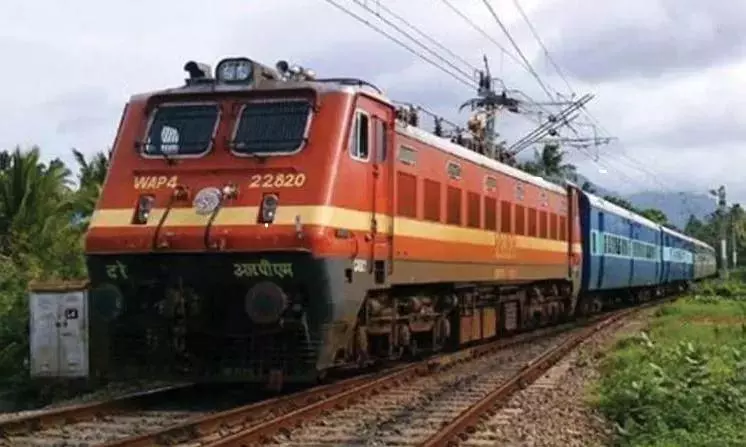Tirupati–Pakala–Katpadi line to be doubled
Union Cabinet clears 1,332 crore rail project

Tirupati: In a major infra push aimed at strengthening rail connectivity in southern India, the Union Cabinet has approved doubling of the 104-km Tirupati–Pakala–Katpadi railway line.
The line passes through Andhra Pradesh and Tamil Nadu.
The project, estimated to cost Rs.1,332 crore, would ease passenger and freight movement along one of the busiest pilgrimage corridors.
The decision was taken at the Cabinet Committee on Economic Affairs chaired by Prime Minister Narendra Modi. Briefing the media, information and broadcasting minister Ashwini Vaishnaw said the project would enhance line capacity, reduce congestion and contribute to India’s sustainability goals.
“This is a transformative project that would improve mobility, increase operational efficiency and bring long-term benefits to both passengers and freight operations”, Vaishnaw said. This, he said, is aligned with the PM’s vision of a New India, where infrastructure growth fuels employment, self-reliance and inclusive development.”
The railway line is a key link to Tirupati, the gateway to the Sri Venkateswara Temple in Tirumala, which draws over 75,000 pilgrims daily, with numbers doubling during peak festival days. Once completed, the project will provide smoother access to the temple town and other prominent heritage and spiritual sites including Srikalahasti, Kanipakam and Chandragiri Fort.
The doubling of the line will expand the Indian Railways network by approximately 113km and is expected to directly benefit around 14 lakh people across nearly 400 villages in Chittoor and Vellore districts. The construction phase alone will generate an estimated 35 lakh human-days of employment.
Vaishnaw emphasized that the project is part of the PM Gati Shakti National Master Plan for multi-modal connectivity and integrated infrastructure development.
“By combining strategic planning with local impact, this project will not only reduce travel time but also improve logistics efficiency and drive economic activity in the region,” he said.
Apart from enhancing passenger convenience, the project is set to handle additional freight traffic of nearly 4 million tonnes per annum, including commodities like coal, cement, agricultural produce, and minerals. The shift to rail transport will help save approximately 4 crore litres of oil annually and cut carbon dioxide emissions by nearly 20 crore kg — the environmental equivalent of planting one crore trees.
“This is not just a rail project, it’s a step toward a cleaner, connected and more resilient India,” Vaishnaw said.

